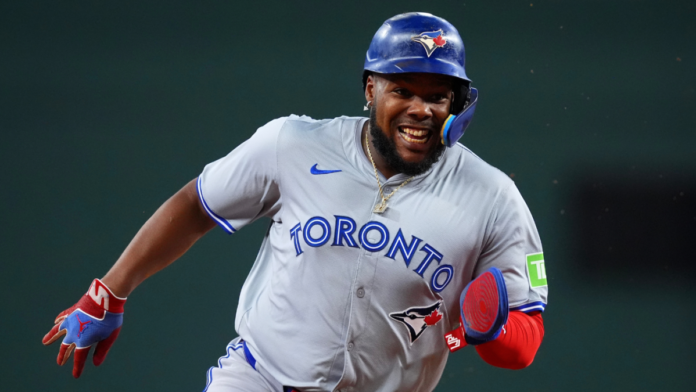Juan Soto made his long-anticipated free-agent decision on Sunday, agreeing to terms on a 15-year contract with $765 million with the New York Mets. Soto’s contract is the richest in Major League Baseball history. In turn, three of the five richest contracts have been signed in the last three offseasons, with fellow top-of-class free agents Aaron Judge and Shohei Ohtani inking their own blockbuster pacts in 2022 and 2023, respectively.
With the ink not yet dry on Soto’s agreement, we feel this is an appropriate time to ask: who’s next? As in, which free agent will be the next to sign a contract that ranks among the five richest in MLB history? For perspective, here are the new top five:
Juan Soto, Mets: $765 million (15 years) Shohei Ohtani, Dodgers: $700 million (10 years) Mike Trout, Angels: $426.5 million (12 years) Mookie Betts, Dodgers: $365 million (12 years) Aaron Judge, Yankees: $360 million (nine years)
Below, we’ve highlighted five players who would seem to have a chance to join the club, and then offered the arguments for and against, as well as our verdict. Do note that this exercise is more of an art than a science, and that you won’t find big names like Ronald Acuña Jr., Bobby Witt Jr. Julio Rodríguez or Fernando Tatis Jr. in here since they all have signed contract extensions.
The players are ranked on who is the most likely to join that top five and crack MLB’s $360 million-plus contract club next.
1. Gunnar Henderson, SS, Orioles
Free agency date: After the 2028 season
The case for Henderson: Henderson will reach free agency at age 27. Despite his youth, he’s already highly accomplished, having earned top-10 consideration in MVP voting in both of his full seasons. Henderson checks every box so far as franchise cornerstone-caliber players go: he hits for average and power; he walks; he plays capable defense at a premium position; and so on.
The case against Henderson: The best argument against Henderson cracking the top five? The possibility that new Orioles owner David Rubenstein ponies up to keep Henderson away from the open market. Otherwise? It’s reasonable to point out that a lot can happen in four years’ time, including but not limited to injury and unexpected skill decay. There are wide error bars here, as you would expect, but Henderson absolutely feels like the best candidate to next crack the top five as a free agent.
Verdict: As certain as it can be four years out.
Free agency date: After the 2025 season
The case for Guerrero: Guerrero has hit at least 30% above the league-average mark in three of the last four seasons. He’ll reach the open market at age 26, making him a young free agent. Even so, he’ll have at least four All-Star nods to his credit, as well as at least two top-10 finishes in MVP voting. Let’s face it, Guerrero’s name and lineage also gives him a certain aura — and has since his days as a top prospect.
The case against Guerrero: It’s simple, really. Guerrero is a right-handed-hitting first baseman. Modern front offices tend to view that profile in an unfavorable light. To wit, only two right-right first basemen have ever cleared $25 million annually: Miguel Cabrera and Paul Goldschmidt. Guerrero’s youth might help offset some of the disdain teams have for his general type, but we’re not convinced it’ll land him in the top five.
Verdict: We’re skeptical, to say the least.
3. Kyle Tucker, OF, Astros
Free agency date: After the 2025 season
The case for Tucker: Tucker is an underappreciated force. A three-time All-Star who has posted the 10th highest OPS+ (min. 500 plate appearances) since the start of the 2022 season. He ranks in the top 15 of Wins Above Replacement during that same period — and that’s with him missing more than half the 2024 campaign, a season that would have undoubtedly qualified as the best of his career had he stayed healthy.
The case against Tucker: Tucker’s game doesn’t have a glaring blemish; our biggest reason to doubt him getting top-five money is something beyond his control: perception. As silly as this sounds, branding is part of being a marquee free agent. Tucker doesn’t have that working in his favor the way that Judge, Ohtani, and Soto did. Blame it on whatever reason you want — playing with more famous teammates; only finishing top-five in MVP voting once; and so on — but we suspect it’ll matter here.
Verdict: We doubt it.
4. Paul Skenes, RHP, Pirates
Free agency date: After the 2029 season
The case for: Skenes is fresh off becoming the first pitcher to ever start the All-Star Game and receive Cy Young, Most Valuable Player, and Rookie of the Year Award consideration the year after he was drafted. He was dominant over the course of 23 starts, solidifying himself as Gerrit Cole’s spiritual successor as the best power pitcher in baseball.
The case against: While all of that is valid, have you considered that Skenes is also a pitcher — and not just a pitcher, but a starter who regularly chucks 100 mph heaters? There’s no telling what the next five years will hold for him healthwise. Even if he remains hearty and hale, he’ll have to overcome some anti-pitcher bias — Cole’s deal (nine years, $324 million) has fallen to the 13th richest in the sport’s history, and is one of only three pitcher contracts in the top 25. (The others being Yoshinobu Yamamoto and Stephen Strasburg.)
Verdict: We’d like to see it, but pitching attrition risks make us uncomfortable.
Free agency date: After the 2027 season
The case for: There’s a statistical case for declaring Rutschman the best catcher in the American League — and perhaps all of baseball. He’s amassed 13.1 Wins Above Replacement since his 2022 debut, tying him with J.T. Realmuto for the most by full-time catchers. Everyone knows that catcher is the most premium defensive position. Why wouldn’t the best of the best backstops — a switch-hitter who receives high marks for his leadership and staff-handling skills, at that — get a massive payday?
The case against: Catcher is the most premium of defensive positions, but you wouldn’t know it based on finances. No catcher has ever cleared $25 million annually, and the best compensated of the bunch (Realmuto) doesn’t rank in the top 60 overall. Rutschman is a high-quality player, but there’s no reason to be the exception. Besides, his output has slipped in each successive season, and he’ll be nearing his age-29 season by the time he puts pen to paper. We highly doubt he’s clearing $360 million.
Verdict: No chance.


